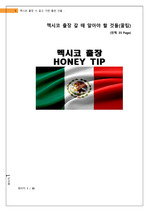목차
없음
본문내용
It is apparent that human language not only plays an important role as a medium which transmits both external and internal human experiences to next generation, but also takes an integral part of culture which contains those human experiences shared by constituents of a particular society. Thus, human languages vary with their socio-cultural environments. Over the centuries, many researchers claimed that different languages have different features. This is called Linguistic determinism, which argues that the language determines one's way of thinking (Kay and Kempton, 1984, p 75). According to this view, the language affects the way one experiences and understands the world, and as a result, it constructs one's way of thinking, behaviour as well as the world view. Linguistic determinism has come up as a theoretical foundation supporting correlation between language and culture. Linguistic determinism has its origin in Humboldt's theory that language identifies with thought (Erickson, Gymnich and Nunning, 1997, p 289). Later, in the process of generalizing the results of specific research and penetrating observation about culture and language of an Indian tribe, Sapir demonstrated Humboldt's idea. Under the influence of Sapir, Whorf formed a frame of language determinism.
참고 자료
Aitchison Jean (1978). Linguistics 2nd ed., New York: Davidmackay Co Inc.
Erickson, Jon., Gymnich, Marion., and Nunning, Ansgar (1997). “Wilhelm Von Humboldt,
Edward Sapir, and the Constructivist Framework.” Historiographia Linguistica 24:3.
Hickerson, Nancy P (1980). Linguistic Anthropology, New York: Wadsworth Publishing.
Kay, Paul., and Kempton, Willett. “What Is the Sapir-Whorf Hypothesis?” American
Anthropologist, Vol. 86, No. 1 (Mar. 1984).
Lakoff, Robin (2000). “The Neutrality of the Status Quo.” The Language War, p 42-85.
Malinawski, B.A (1960). A Scientific Theory of Culture and Other Essays. New York: Oxford
University Press.
Sapir, Edward (1949). Selected Writings of Edward Sapir in Language, Culture and Personality
Edited by David G. Mandelbaum., Berkely: University of California Press.
Tannen, Deborah (1998). “Fighting for Our Lives.” The Argument Culture: Moving From
Debate to Dialogue, p 3-26.
Whorf, Benjamin L (1956). Language, Thought, and Reality; Selected Writings. Cambridge:
Technology Press of Massachusetts Institute of Technology.




